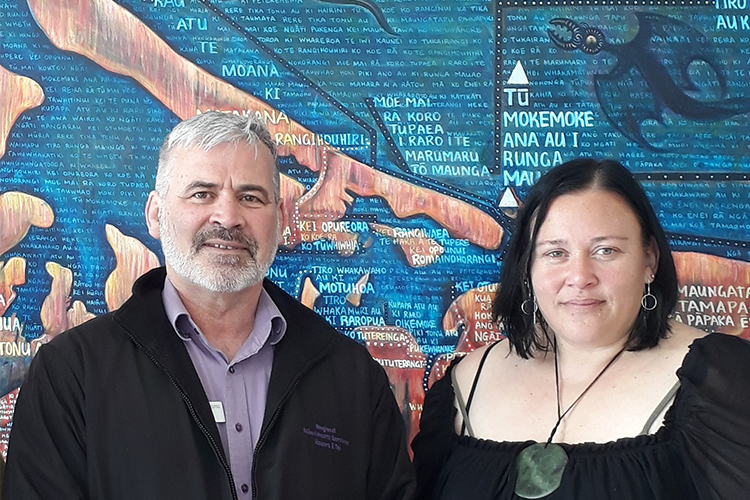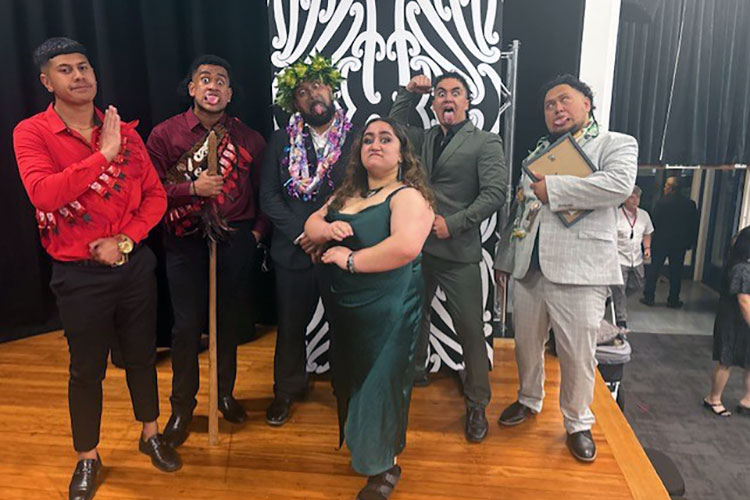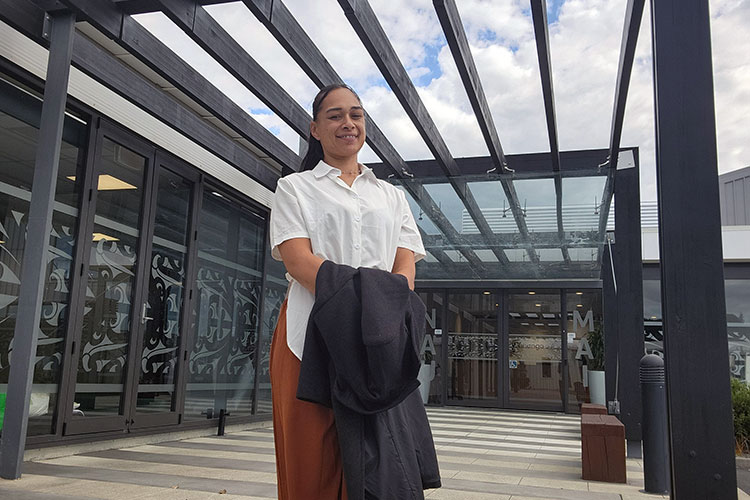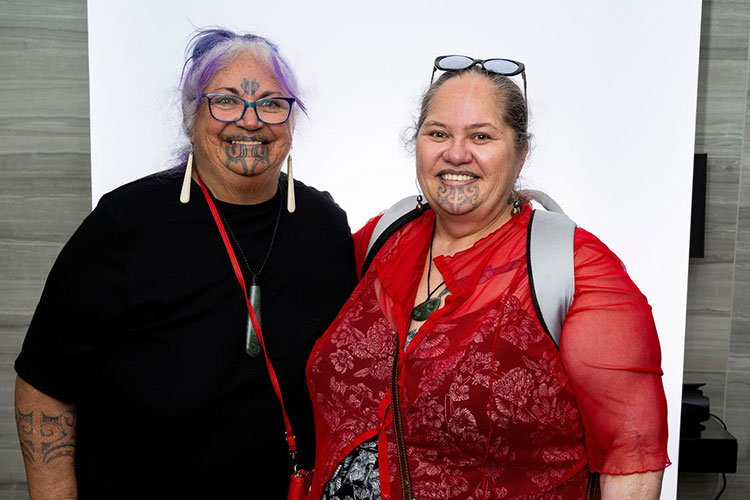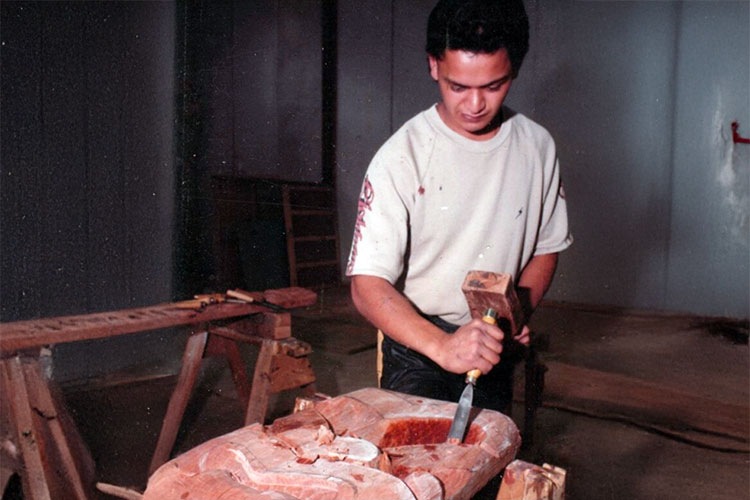Maaka Leabourn and Sai Watson Crooks
It’s the only specific Bachelor of Bicultural Social Work degree offered in Aotearoa.
And, as you’d expect, it has some uniquely New Zealand and Māori elements to it. These include the idea of Te Tiriti o Waitangi being the basis for social justice in this country, addressing the impacts of colonisation, and the differences and similarities between Māori and Pākehā approaches to manaakitanga (providing help).
The four-year, national course, which has tauira (students) from around the country, is offered out of Manukau, Hamilton, Tauranga and Palmerston North campuses of Te Wānanga o Aotearoa, and involves compulsory noho marae stays, weekly in person classes and Zoom classes, as well as self-directed study.
Māori tikanga and kawa (custom and practices), alongside Western social work concepts, are integrated into what is taught. Many attending the degree course are already employed in the social services field and gaining an academic qualification through a time-flexible course allows them to become formally registered as a social worker. The course is open to applicants who have relevant work experience or qualifications, and who meet a range of other criteria (see link below for details).
Two recent Tauranga-based graduates from the course, Maaka Leabourn (Whakatōhea) and Sai Watson Crooks (Ngāpuhi, Ngāti Tūwharetoa), say doing the degree has armed them with important learnings they apply practically in their work.
Maaka, who now works as a kaupapa Māori family social worker at the Bay of Plenty District Health Board, says he’d previously been a support worker in the mental health, addictions and forensics field for some years but wanted to take things further by doing a degree. “I had recently started my own rediscovery into te Ao Māori, I wanted to learn more but again did not know how. I grew up not knowing who I really was, just another kiwi kid, but there was always something missing.”
So doing the degree course helped him learn more about who he was as well as prepare him well for his new social work career. “It worked well for me. It was a lot of learning about a lot of things I had not heard of before.
“I was petrified at first…(but), after the third noho marae, I was hooked and totally immersed myself into the learning. I learnt what a Māori world view really was, the difference between many world views and I learnt which one I would remain in after graduation.
“What the course really taught me was that for the first time in my life I found the courage to stand up and say ‘he Māori ahau’ (I am Māori). Until then I didn’t believe I had the right to claim my Whakatōhea ancestry. But I did and still do today.”
Sai Watson Crooks, meanwhile, was attracted to the course partly so she could better understand the impacts of colonisation on Māori and what strategies were available to help them recover.
“Te Wānanga o Aotearoa’s course has offered me a kete (basket) full of knowledge, that supports me to understand how a multitude of issues arose and have presented over time,” says Sai.
The course helped build her knowledge on many theories and models available to de-escalate problems, as well as support whānau needing help to move into a healthier space.
“I have learned that embracing what we know and what we have been taught allows us to practice in a manner that empowers our people. The knowledge that has been placed in our kete prepares us to fight any challenge.”
Sai is currently the housing coordinator at Te Tuinga Whanau-Whare4Whanau, supporting a team of 18.
Their Transitional Housing service identifies many whānau in need who have lost their way due to historical trauma, addiction, mental health issues and homelessness.
“Being able to apply social work with a bicultural approach has been an essential part of my practice due to the large number of Māori whānau we have supported over the years.”
Both Maaka and Sai say Māori social workers and their clients can face uniquely Māori challenges.
Maaka says the health disparities between Māori and non-Māori remain very real and that, as a kaupapa Māori practitioner, he is very clear about how he aims to effect change using a kaupapa approach. “I think differently, I act differently, my positioning comes from a different place and I am responsible to my tīpuna (ancestors) and my mokopuna (descendants).”
Sai says she’d like to see greater support for Māori regarding mental health and more addiction rehabilitation centres, along with greater application of mātauranga Māori (knowledge).
“Applying mātauranga Maori ensures respectful relationships are met and Māori protocols are practiced to keep both the social worker and the whānau safe.”
For more information on the degree course visit https://www.twoa.ac.nz/nga-akoranga-our-programmes/social-services/bachelor-of-social-work. The Bachelor of Bicultural Social Work is open to all.
































